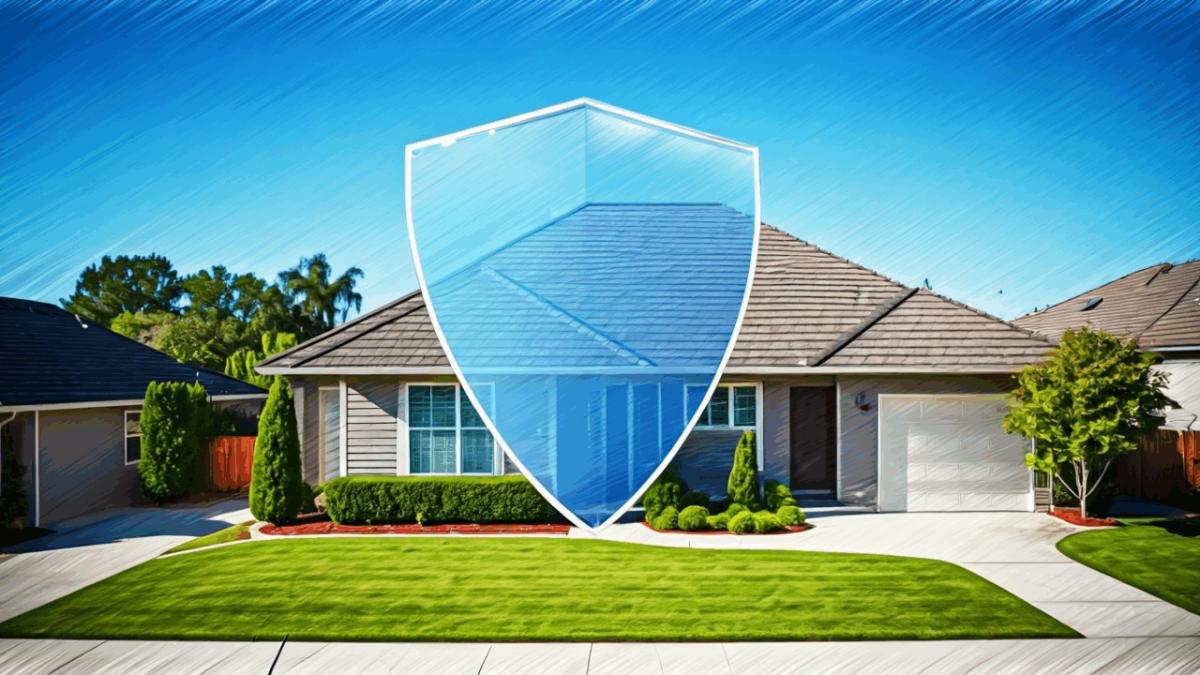
Key Highlights
- Mortgage protection insurance is a specific type of insurance that ensures your mortgage balance is paid off if you pass away during the policy term.
- This insurance offers peace of mind by relieving families of financial burdens tied to mortgage payments during difficult times.
- Unlike homeowners insurance, MPI covers mortgage-related costs rather than damages to property.
- Many policies include a death benefit or added coverage for critical illness or disability.
- Beneficiaries cannot use the payout for other expenses, offering a focused yet limited form of financial security.
Introduction
When you want to protect your future, mortgage protection (MPI) can help. This insurance takes care of your mortgage payments if you can’t pay because of death, disability, or a similar problem. Some people think it is like homeowners insurance, but it is not. Homeowners insurance protects your home itself. Mortgage protection helps with your money worries by paying off your home loan if something bad happens to you. MPI gives peace of mind and financial security, so you and your family do not have to worry about losing your house. It is a good way to keep your home safe and to stay on top of your financial needs.
What Is Mortgage Protection Insurance (MPI)?

Mortgage Protection Insurance (MPI) helps pay off your home loan if you die or become disabled. With this insurance, your family can keep the house and not worry about making mortgage payments during hard times. Mortgage protection gives peace of mind knowing the home will be safe if the unexpected happens.
How MPI Differs from Other Mortgage-Related Insurance
Understanding how mortgage protection insurance (MPI) is not the same as other types of insurance is important. MPI is different from private mortgage insurance (PMI). PMI is a rule for some borrowers who make less than a 20% down payment. PMI is there to protect the lender if you do not pay back your loan. On the other hand, MPI helps make sure your family will not have to deal with mortgage payments if you die.
Homeowners insurance and mortgage protection insurance are not the same either. Homeowners insurance helps cover your home if things like fires or bad storms cause damage to your house. MPI, though, is about paying off your mortgage debt. Its death benefit is sent right to the lender. This can help your loved ones and make things simpler for them.
Term life insurance is another kind of life insurance that also helps with things like mortgage payments. But it gives a payout that your family or other people can use however they need. This could include using it to pay for your home, cover bills, or help in other ways. MPI does not offer as much choice or flexibility in how the money from the insurance is used. This is a key thing you should think about before choosing MPI or another type of insurance.
Typical Features of MPI Policies
The structure of an MPI policy is made for people who own a home.
- Mortgage balance alignment: The coverage goes down as you pay more of your mortgage.
- Death benefit and coverage: If you die, these policies pay your lender straight to protect against any unpaid mortgage balance.
- Fixed premiums: You pay the same amount each time, which helps you plan your money better.
- Add-on riders: Some can also cover you if you get very sick or cannot work due to a disability.
What makes mpi special is how easy it is to sign up. You usually do not have to get a medical exam. Still, the death benefit gets smaller as you pay off your mortgage over time, so the safety net is not as strong as before. Also, many mpi policies only last as long as your mortgage, making their coverage less than some other insurance choices. These points mean MPI is made for mortgage balance and financial protection, but it is also limited in some ways.
How Does Mortgage Protection Insurance Work?

Mortgage protection insurance is a type of term policy. The insurance company gets payments from the policyholder. If something happens, like death, the insurance company pays the mortgage balance straight to the lender.
Unlike the more flexible life insurance, MPI, or mortgage protection insurance, covers the mortgage only. The payout drops as the mortgage balance goes down. This means the lender gets paid, but it will not help with other financial needs. This simple structure makes MPI clear and focused just on the mortgage.
Eligibility and Application Process in the U.S.
In the U.S., getting MPI is easy thanks to a smooth application process. Most plans offer guaranteed approval, and you do not need a medical exam. This makes it open to many people, even those who have health issues already.
Eligibility is usually based on your mortgage amount, your age, and how long your mortgage term is. The insurance company may set age limits. Most of the time, these are from 18 to 65 years old. Some companies will not cover mortgage terms longer than 30 years.
To apply, all you need to do is reach out to an insurance company, fill out some forms, and pick any extra options such as coverage for major illness if you want more protection. There are no tricky rules. MPI policies are made to be simple, quick, and fit right with your mortgage, so you do not have to wait long or deal with hard steps.
Claiming Benefits and Policy Payout Structure
Claiming MPI benefits is simple and quick. If the policyholder dies, the insurance company pays the lender directly. This means the family does not have to deal with the money or handle the stress during a tough time. The mortgage payments continue without any problem from their end, even after the loss.
To start the claim process, the people left behind will need to give a death certificate and maybe other documents. The death benefit eases the money worries, but it only goes to the mortgage repayment.
The way MPI payout works also has a big limit. While the mortgage balance gets smaller as you pay it off, the amount they pay out goes down too. But the fixed premiums you pay every month stay the same. So, families must think about this shrinking death benefit when looking for financial protection, and decide if its special focus on paying your mortgage is worth it.
Coverage and Exclusions of MPI
The coverage amount you get with mortgage protection insurance helps make sure that your mortgage balance will be paid if something happens to you. The plan can cover things like death, disability, or a serious illness.
But, there are often things that are not covered. Some plans leave out pre-existing conditions, or do not help if you lose your job. Mortgage protection is not as flexible as life insurance. This means it might not give your family all the financial help they need. Be sure to read your mpi policy details closely. This way, you know what you get, what isn’t covered, and you avoid surprises later.
What Is Covered by Most Policies?
Most MPI policies are set up to take care of some of the most important parts of financial protection when it comes to your mortgage.
- Mortgage payments: MPI is there to make sure the lender always gets all mortgage payments if covered events happen.
- Death benefit: The policy only pays off the mortgage debt if the policyholder dies.
- Type of coverage: Lots of these policies add things like critical illness, accidental death, or disability benefits.
- Mortgage balance payout: With extra riders, people can change the policy to fit their financial needs.
MPI covers the basics you need. But its payout is mainly used to repay the mortgage balance, so it does not offer as much flexibility as traditional life insurance. Homeowners need to really look at the riders, plan terms, and any exclusions in the policy to get the most from their financial protection.
Common Exclusions and Limitations
Despite being made for very specific needs, MPI policies have some big limitations and things they do not cover.
- Waiting period: Sometimes, you have to wait for a set time before you get any benefits.
- Job loss restrictions: Many plans do not cover you if you lose your job.
- Lack of flexibility: The payout is only for your mortgage. You cannot use it for anything else.
- Shrinking benefit: The payout amount gets smaller, so the premiums you pay are worth less over time.
These limits mean the financial help you get is not as wide as you may want. Some things might not be covered at all. If you own your house, look at the policy riders and all the rules before you pick an MPI plan. This way, you can be sure it fits what you need.
Comparing MPI to Other Insurance Options
Choosing between MPI and other life insurance policies means looking at what each one gives you. MPI is made to pay off your home loan if you die. The payout gets smaller as you pay off the loan. With term life insurance, your loved ones get the same amount if you die during the policy term. They can use this money for any needs, not just the house.
MPI is meant for one main thing. But the amount you get goes down over time, and you can’t use it for much else. On the other hand, traditional life insurance helps give wider financial protection to your family. It lets them take care of many needs, not just the mortgage. Looking at these key points can help make a good choice for you and your family when picking the right life insurance policies.
MPI vs. Private Mortgage Insurance (PMI)
Mortgage protection insurance (MPI) and private mortgage insurance (PMI) help with different things when it comes to mortgage insurance. MPI is made to help with mortgage payments if the policyholder dies. This type of mortgage protection gives families financial protection and peace of mind during a tough time. On the other hand, PMI is there to protect lenders if you, as a borrower, make only a small down payment on a regular loan. PMI is usually a must for those loans, but it does not help homeowners directly. While PMI does not give any direct benefits to you, MPI can help your family keep the home if something happens. This is why getting mortgage protection like MPI gives more peace of mind and helps take some worry out of paying for your home.
MPI vs. Term Life Insurance
The debate between MPI and term life insurance is about how much flexibility and value you get. With MPI, the payout goes only to your mortgage payments. That can be simple, but it does not give you much freedom. Term life insurance, though, gives a set death benefit. Your family can use all or some of this money for more than just mortgage payments. They can use it for other living costs too.
With term life insurance, you get steady premiums and the same payout the whole time the policy is active. This means your loved ones know what they will get, no matter when you make a claim. But as time goes on, the coverage you get with MPI goes down. So, it may not be as helpful in the long run. Because of this, most people see more value in term life insurance. It helps with mortgage payments and other costs, so your financial security and your family’s will be better covered.
Conclusion
To sum up, Mortgage Protection Insurance (MPI) helps keep you and your home safe if something unexpected happens. With this insurance, your mortgage payments will be made even if you face a tough time. It gives you and your family financial security. Learning more about MPI, its features, who can get it, and how it stacks up against other options can help you choose what works best for you.
Think about what the coverage includes and what it does not. This way, you can decide if this type of mortgage protection fits your overall money plan. Looking after your home is very important. With the right facts, you can feel sure about your choice for this part of being a homeowner. If you want to know more or need help, our experts are here for you.
Frequently Asked Questions
Is mortgage protection insurance required by law in the United States?
No, you do not have to buy mortgage protection insurance by law in the United States. Some lenders may ask you to look at it as extra coverage. But, this is different from private mortgage insurance which you must have sometimes. Mortgage protection insurance (mpi) is only something borrowers can choose for themselves. It is not required.
How is the cost of MPI calculated?
The cost of MPI depends on a few things. These include the coverage amount, your age, your health, and what the lender thinks about risk. Most of the time, you get fixed premiums. These go along with the mortgage amount you have left. Insurance companies may also look at other options that can give you extra coverage.
Can I cancel my MPI policy anytime?
Yes, MPI policies do let you cancel if you want. You have to talk to your insurance company and follow what they say to do. Be aware that any premium you have already paid is not refunded.
Does MPI cover job loss or disability?
Some MPI policies offer coverage if you have a disability or lose your job, but what you get will be different depending on the provider. It is important to check for any exclusions and extra options. This helps make sure the MPI coverage matches what you need.
Who should consider buying mortgage protection insurance?
MPI is a good choice for borrowers and homeowners who want extra financial security for their mortgage. This option works well for people who still have a large amount left to pay on their home. It also helps those who have family members who count on their income. MPI gives another way for people to protect their homes, especially if they want something different from traditional life insurance. This can be good for those who want more than what regular life insurance usually offers.

